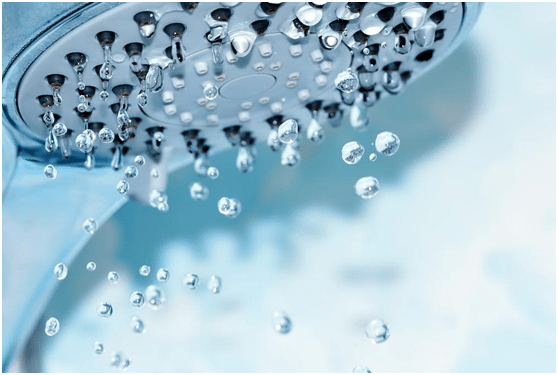Keep Your Pipes Flowing Smoothly
Blocked drains and drain issues can be a major inconvenience, causing unpleasant odors and sometimes even significant damage to your plumbing system. Common causes of blocked drains include wet wipes, paper towels, coffee grounds, and grease buildup. If you’re searching for a blocked drain plumber near me, prevention is key to avoiding these messy and costly situations.
Common Causes of Blocked Drains
Several everyday items contribute to drain blockages. Understanding these can help you avoid potential issues:
- Tree roots invading pipes
- Grease, fat, and oil buildup in kitchen drains
- Flushable wipes that don’t break down properly
- Toiletries like cotton buds, cotton balls, and makeup removal pads
- Feminine hygiene products flushed down the toilet
- Soap scum buildup in bathrooms
- Hair collecting in bathroom drains
- Solid food being disposed of in sinks
Early Signs of Blocked Drains
If you notice any of the following signs, it’s time to call a blocked drain plumber near me to prevent a full blockage:
- Slow draining water: Water collects in sinks or drains slowly and may eventually pool.
- Toilet water level changes: Water levels in the toilet may rise too high or remain too low when flushed.
- Unpleasant odors: Trapped debris decomposes, releasing foul smells from drains.
- Gurgling noises: Clogged drains often make a gurgling sound as water tries to flow through.
How to Prevent Blocked Drains
Kitchen Tips
- Dispose of grease properly: Never pour cooking oil or grease down the sink. Collect it in a container and dispose of it in the bin.
- Use a plug strainer or waste food grinder: Prevent food particles from entering the drain by using a strainer or grinder.
- Rinse dishes before washing: This prevents food debris from clogging your dishwasher or sink.
- Use coffee grounds wisely: Instead of dumping coffee grounds down the sink, use them for composting or discard them in the trash.
- Regularly flush with boiling water: Pouring boiling water down your sink helps to break down grease buildup and prevent blockages.
Toilet Tips
To keep your toilet drains clear, avoid flushing the following items:
- Wet wipes labeled as “flushable” – these do not break down in the pipes.
- Feminine hygiene products like tampons and pads.
- Paper towels and hard objects like toys, batteries, or other items that might end up in the toilet.
Bathroom Tips
- Catch hair with a drain screen: Use a screen or grate in your shower or bathroom sink to catch hair before it clogs the drain.
- Use a lint catcher: This prevents lint from your laundry from backing up in your laundry tub or drains.
How to Prevent Blocked Stormwater Drains
Stormwater drains can also become blocked by debris, which is where a blocked drain plumber near me can help. However, you can reduce the risk of blockages by following these tips:
- Use stormwater grates to cover drains and prevent leaves, twigs, and debris from entering.
- Maintain your garden: Keep your garden tidy to reduce the chance of debris entering your stormwater drains.
- Clean your stormwater drains regularly: Have your stormwater drains cleaned at least twice a year to avoid buildup.
Other Tips to Prevent Blocked Drains
- Avoid harsh chemicals: Instead of using chemicals to clean your drains, consider using a natural solution or call a professional plumber for maintenance.
- Schedule regular inspections: Hiring a licensed blocked drain plumber near me for routine plumbing inspections can help identify and clear minor blockages before they become bigger issues.
Why Prevention Is Better Than Cure
It might seem unnecessary to schedule a plumbing inspection with a licensed plumber when your drains seem fine. However, it’s far more cost-effective to prevent a blocked drain plumber near me from needing to clear a severe blockage later. Regular routine maintenance inspections using drain cameras on your stormwater and sewer drain, and proactive care can save you money and avoid the stress of a clogged drain emergency as well as peace of mind to better avoid future drainage issues.
What are some methods of drain repair?
When it comes to pipe and drain repairs, several methods are employed to effectively address issues while minimising disruption. One of the most efficient and innovative techniques is pipe relining, which involves applying a durable lining to the interior of existing pipes, creating a watertight barrier without the need for excavation. This non-invasive approach not only extends the lifespan of the pipes but also eliminates the mess associated with traditional repair methods. It is also strong enought to guarantee against tree root intrusion for up to 50 years. In cases where blockages are severe or pipes are irreparably damaged, excavation and pipe replacement may be necessary. Additionally, advanced technologies such as high-pressure water blasting and CCTV drain inspections enhance the effectiveness of drain cleaning and unblocking. High-pressure water jetting swiftly removes stubborn blockages, while CCTV cameras allow for precise identification of issues, ensuring that the most appropriate repair method is applied for optimal results. Together, these techniques provide comprehensive solutions to maintain the integrity and functionality of drainage systems.
To find out more about drain relining, pipe repairs or any other plumbing service, give our expert team and speak to our experienced plumber on 02 9649 1099. Our customer service team and drain specialists will be able to answer any further questions you may have.






